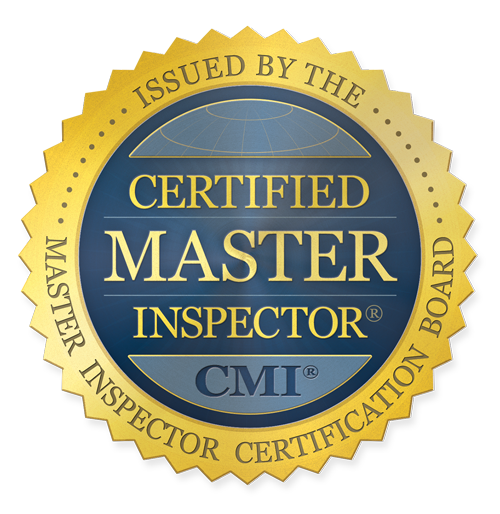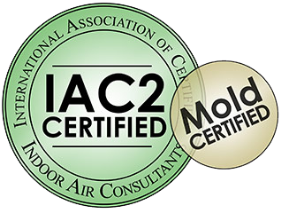Is your insurance company requesting a 4-point inspection before your next policy renewal? Or, are you planning to sell your home and want to make sure prospective buyers feel confident they’re purchasing a house that’s safe, secure, and free of “money pit” risk? Observing key home maintenance steps is the best way to guarantee you’ll get a “passing” grade.
The 4-point inspection takes a look at some of the most critical home systems:
- Roof
- HVAC
- Plumbing
- Electrical
Insurance companies know that when these systems are in good shape, they don’t have to worry about their bottom line. Observing the following annual maintenance tips keeps these systems performing as designed and ensures old or outdated parts are replaced before they cause problems – or raise the red flag during the home inspection.
Steps to Maintaining Four Main Home Systems
Today, we’ll review each of the four critical home systems evaluated during a four-point inspection, along with simple steps for maintaining them annually.
1. The roofing system
The roofing system involves far more than what you see on the outside in the way of shingles or metal roof exteriors. It starts with the roof deck, underlayments, fasteners, necessary flashing, and other water barriers. We also ensure the roof has adequate wind mitigation features and that the attic is adequately insulated.
Scheduling routine roof inspections using a local, licensed roofing contractor is the standard method for optimizing roof performance. During these inspections, which take place once or twice a year depending on the situation, the roofing contractor will:
- Walk the roof and look for any signs of damage or wear/tear
- Repair any leaks or damaged areas.
- Clear the roof, gutters, and downspouts of debris.
- Clean the roof if there’s any evidence of algae, moss, or mold.
- Reseal or refasten areas that need it
By the end of the inspection, the contractor provides a list of anything that needs to be done beyond standard maintenance work. They’ll also let you know if the roof is due for replacement. Here in Florida, most homeowner’s insurance carriers refuse to insure or charge hiked premiums for roofs that are 15 years old or more, depending on the roofing materials and quality of wind mitigation.
You can also schedule a roof inspection with a third-party building inspector. We recommend doing this every five years or so. Our objective review ensures your regular roofing contractor is doing their job and honoring your maintenance agreement.
2. Heating Ventilation & Cooling (HVAC)
HVAC systems still feel like an after-market luxury for many, so it may seem strange their part of a 4-point inspection. In fact, improperly installed, outdated, or poorly maintained HVAC systems cause expensive consequences, and insurance companies aren’t interested in paying for them. Insurance carriers want to know if these systems are updated and running correctly.
During the HVAC portion of a four-point inspection, we evaluate the age and current working conditions of the:
- Mounted A/C units
- Outdoor A/C units
- Ductwork and vents
- Fireplaces
- Boilers
It’s immediately evident when homeowners neglect annual maintenance requirements. At the very least, change HVAC filters at least every six months – more if you have allergy-prone occupants. Better yet, schedule bi-annual maintenance appointments with your preferred HVAC contractor to ensure the system runs as efficiently as possible year-round.
3. Plumbing systems
Plumbing systems include all of the pipes in the household, showers/baths, sink faucets, drains, and the water heater. During a plumbing inspection, we’re looking for things like:
- Quality and condition of the pipes
- Plumbing that drains at a normal rate with no sign of a blockage
- Any evidence of leaks
- Water heaters that are installed as per code and are less than 11 years old
Homeowners can easily perform most plumbing maintenance on their own by:
- Never flushing anything down the toilet that shouldn’t be there
- Checking for tank leaks using food coloring (put a few drops of food coloring in the tank – if it shows up in the toilet bowl, you have a leak).
- Cleaning showerheads and sing faucet ends with vinegar.
- Flushing the water heater once a year to clear mineral deposits.
- Inspect for toilet and sink faucet leaks at least every three months.
Repair any leaks as soon as you notice them to prevent water waste and water damage to the home. In addition to wasting water and putting your home at risk for water damage, longstanding leaks put your home at risk for mold and mildew damage, which leads to costly structural repairs.
If you know you have outdated pipes (pipes haven’t been replaced since the 1970s or 1980s), speak to a licensed plumber about your options. If we notice pipes or plumbing systems parts are outdated during the inspection, we happily provide references to licensed area plumbers who can do the work for you.
4. Electrical panels and wiring
Electrical malfunctions are the third leading cause of house fires in the U.S., causing 40 deaths and 100 injuries annually (NFPA). So, it’s not surprising that insurance carriers (and potential buyers) want to know if the electrical panels and wiring are up to date and installed to code.
Simple DIY electrical system maintenance steps include:
- Using an outlet tester to check outlets at least once per year while also ensuring outlet and switch plates are securely fastened and free of cracks or damage. They should also be cool to the touch.
- Unplugging any unused appliances or fixtures.
- Ensuring outlets aren’t overloaded.
- Taking a look at the electrical panel to ensure it’s not outdated (40 years old or less), free of splitters, quiet, and cool to the touch without any burning smells.
If your older home relies on extra extension cords or powerstrips (or you frequently have to reset circuit breakers), it’s time to schedule an appointment with a licensed electrician to bring your home up to current code standards.
Pro Tip For Worry-Free Home Maintenance
Did you know many licensed contractors offer some annual maintenance package or maintenance club? This is an excellent way for homeowners to enjoy more time doing what they love, knowing qualified professionals will take over routine maintenance requirements for them – and contractors do all the calendering and “remembering” for you.
Most of them schedule an inspection and maintenance appointment once or twice a year, after which they provide all the paperwork needed to prove your home qualifies for the most affordable premium rates. In some cases, you’ll also benefit from discounts on necessary repairs or replacement costs.
Interested In Learning Where Your Home Systems Need Updating?
Do you suspect your home’s critical systems are in need of maintenance or updates? Contact Super Inspection Pros. We’ll get someone out there within 24 hours or less and can recommend the appropriate inspections based on what we see. Our team of inspectors love to work with homeowners who are ready to learn, and we’re happy to leave you with a list of maintenance recommendations to ensure you pass your 4-point inspection the next time you need one.

